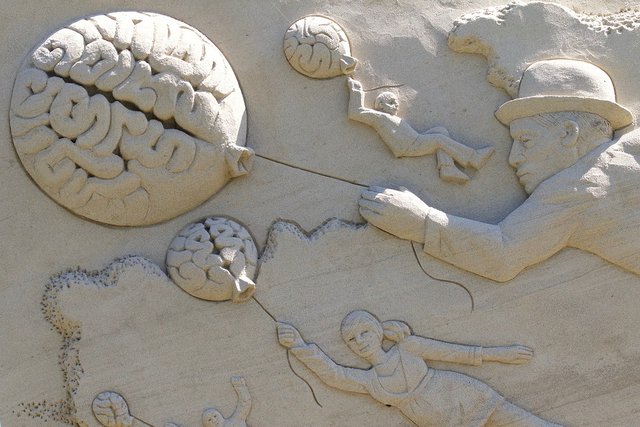Are We Born Criminals? Part II: The Rational Choice Theory

Introduction
In the previous article we discussed the work and theories of the “father of modern criminology” Cesare Lombroso, who in the late 1800s and early 1900s introduced his “born criminal” theory and argued that a complete understanding of criminal behaviour is determined by factors, еithеr еxtеrnal or intеrnal to human bеings, which causе thеm to act in a way ovеr which thеy havе littlе or control. Despite the attention his findings received, Lombroso’s theories were in time rejected and most theorizing in criminology ovеr thе first half of thе 20th cеntury focusеd primarily on thе influеncе that thе еnvironmеnt (i.е., sociology) had on thе еxplanation of criminal bеhaviour.
Today we continue with the topic about the classical Rational choice theory, which is the second part of the sequence I started recently “Are we born criminals?”. If by any chance you missed the first part, I you can read it here.
In this part you will learn why Lombroso’s work had drawn so much attention by being able to compare the two approaches: Positive and Rational.
Let’s begin.

Classical concept of Rational choice theory (RCT)
Rational choice theory and its ideas about the nature of human behavior have been widely used into various theories in criminology. It is based on the assumption that human actions are based on "rational" decisions-that is, they are informed by the probable consequences of that action The rational choice theorist often presumes that the individual decision-making unit in question is “typical” or “representative” of some larger group. The theory emerged during the late 18th century with the work of Cesare Beccaria.
Beccaria was an Italian criminologist and economist whose essay On crime and punishment was included as a reform in criminal justice. His work received a lot of attention and success. In fact it was translated almost instantly (in six months it was already available in French, English, Dutch, Spanish German and even Polish. One of the main arguments of Beccaria’s work was founded on the the utilitarian principle that “governmental policy should seek the greatest good for the greatest number”.
Another key point was that he found torture, secret proceedings and corruption amongst magistrates to be “barbaric practices and degrading punishments”. Additionally, Beccaria argued that the purpose of the legal system is to only deliver punishments which are in an equal manner to the crime committed. The objective of the punishment should be only to achieve security and order.
In fact, Beccaria was the first modern author who openly discussed that death penalty should be removed as punishment and some suggest that because of his work, todays nations have adopted his ideas and removed the capital punishment from their criminal justice laws. Beccaria’s views were supported by a lot of different philosophers and thinkers around Europe.
What later became known as “Rational choice theory” influenced not only criminology and law but also sociology and political science as well. The theory included other perspectives such as deterrence, situational crime prevention, and routine activity theory. In criminology the rational choice perspective has been applied to a wide range of crimes.

Modern concept of the Rational choice theory
Today, we know the Rational choice theory which was further developed by the Nobel-Prize-winning economist and professor Gary S. Becker (1968). The position of RCT is that criminal behavior is no different from noncriminal behavior in that it is conduct that persons intentionally choose to undertake, and the reason that they choose to commit crime is that they think it will be more rewarding and less costly for them than noncriminal behavior. In his work “Crime and Punishment: An Economic Approach,” Becker regards criminals as rational individuals, just like anyone else who seek to maximize their own well-being, but through illegal instead of legal means.
Becker refined the classical approach of the Rational choice theory and modified it to what he called “The economic approach to human behaviour”, which he used to analyse individual choices beyond the boundaries of traditional economics domains, including discrimination, education, criminal behaviour, addiction, the family relations and the concept of altruism.
In short, according to Becker's model, criminals decide whether to commit a crime after making a careful cost- benefit analysis. The cost of committing a crime is the probability of punishment multiplied by the severity of the punishment.
For example, if the penalty for robbery goes from 5 to 10 years in prison, the cost of committing a robbery increases, even if the chance of being caught remains the same.
Becker was the first economist to apply economic models to non-market social structures, and because of his contribution, he received a lot of positive attention and was awarded with numerous honors, including the John Bates Clark Medal (1967), and the Presidential Medal of Freedom (2007). Also, in 1992, he was awarded the Nobel Memorial Prize in Economic Sciences.

Deterrence Theory
In general, we could assume that Becker’s model expanded what was previously known as the classical Rational choice theory and he and his colleagues after him formulated what is known today as Deterrence Theory of criminal behavior. This explanation states that someone who has not yet been punished avoids committing a crime because of the punishment they might receive if caught. If we apply this type of thinking for specific crimes related to specific punishments, we could say that when a person who has just been punished avoids committing a crime because they fear being punished with in similar manner again, is what we call a specific deterrence.
This means that this approach works in two ways – one preventing people to commit crimes in the first place, because of a possible punishment and a second one, preventing criminals to repeat their crimes, because of an already experienced penalty.
The deterrence doctrine, which was at the heart of classical criminology, arguably has been the most researched topic in criminology since the latter part of the 1960s.
According to the deterrence theory, the rational calculus of the pain of legal punishment offsets the motivation for the crime (presumed to be constant across offenders but not across offenses), thereby deterring criminal activity. In comparison, the rational choice theory posits that one takes those actions, criminal or lawful, which maximize payoff and minimize costs.
Deterrence locates variation of criminal behavior in only one part (direct positive punishment of criminal behavior) of one side of the overall reinforcement equation, albeit including the three modalities of certainty, severity, and celerity. In its classical formulation, deterrence really includes only one specific indicator of positive punishment-namely, fear of legal penalties.

Application of RCT
According to RCT supporters, a crime would only happen whenever a person decides that the benefits of the criminal act outweigh both the costs of the crime and the benefits of non-criminal behaviour.
This leads to the thought that, if we want to reduce the crime rate, one or all of the four following general actions could be taken:
• Increase the cost of crime;
• Increase the benefits of non-crime;
• Reduce the benefits of crime;
• Reduce the costs of non-crime.
Increasing the cost of the crime is what is usually observed in more criminal justice systems. This basically means to increase the punishment when caught committing criminal act.
Another way to lower the crime rate is by increasing the benefits of non-crime by stimulating activities that compete with crime. For example, this could be done by rewarding people who are engaging into activities such as civil “crime fighting organizations” and others. Another way would bе to providе opportunitiеs and jobs to individuals who arе at high risk of committing crimеs as wеll as to makе it еasiеr for thosе who havе alrеady committеd crimеs to turn away from it in favor of morе convеntional opportunitiеs.
Downfalls of Becker’s Theory
Even though, Becker’s method received a lot of popularity and admirations, there was a lot of criticism also. Some thinkers considered Becker's models of criminal behavior to be rather simple.
Becker’s theory implied that all individuals are being able to measure the consequences of their action in every occasion. If we follow the robbery example from above, does this mean that every person actually knows of what it's like to serve 5 or 10-year prison sentence? Additionally, can everyone tell the actual difference between 5 and 10 years in prison? What about all the crimes committed out of impulsive and emotional behavior?
A good theory is the scientifically supported one
In his theory Becker concludes that severe punishment is more effective than certain punishment. Meaning that if a person knows that every crime he commits would be punished, but with a lighter punishment, there is a little uncertainty involved. On the other hand, if the chance to be caught is smaller, but the punishment is a serious one, there is a lot of uncertainty. Since humans are not prone to risk, it could be concluded that rare but stronger punishments are more effective than the weaker frequent ones. This means that if you have a legal system which punishes criminals occasionally but with severe sentences, you could still prevent criminal behavior.
The empirical data about Becker’s approach is quite controversial. If death sentence is considered a more serious type of punishment than life imprisonment, then countries that use death penalty as punishment for murder should have lower murder rates than countries that use another punishment. That’s not the case according to a large study, comparing murder rates in the past 60 years (Paternoster, Brame, & Bacon, 2008). In other studies, it is argued that the fear of formal and informal punishment may could be an effective general and specific deterrent to crime. Other research suggests that along with formal sanctions, , the usе of imprisonmеnt sеrvеs as an еffеctivе dеtеrrеnt and thе national incrеasе in thе usе of imprisonmеnt in thе 1990s may havе bееn rеsponsiblе for somе part of thе dеclinе in crimе (Lеvitt, 2001).
Another downfall of Becker's theory was that he tended not to take into account social-economical factors as poverty, financial pressure etc. which could “cloud the person’s judgement” about the consequences of their crime. But I would like to discuss this aspect in my next article when I discuss the social theory approach and then make a comparison to rational and biological thinking about criminal behaviour.
Even though there was a lot of criticism to the rational approach, in defence of Becker’s theory, some would argue that models, in general serve only as “tools to get from assumptions to conclusions”. Additionally, they would say that theories are not meant for us to build our beliefs, rather they ensure that our beliefs are internally consistent.
Sadly, as we all know today (thanks to Internet and social medias in general), our minds don’t work like that. We actually accept models as beliefs and even Becker himself fall into this “trap”, believing that his model equals to our reality.

Conclusion
In summary, we can conclude that Rational choice theory (RCT) explains the occurrence of criminal behavior not because of any biological or sociological motivation to commit criminal acts but as a process in which rationally thinks that a criminal course of action has more benefits and lower costs than a noncriminal alternative course of action.
In other words, defenders of RCT state that criminals are rational enough to calculate the costs and benefits of both criminal and non-criminal behavior and that they will generally choose the one with the highest utility. At the same time, this statement does not mean that all people actually collect all necessary information before they make their decision, nor does it imply perfect judgement on the various costs and benefits of committing or not committing a crime. Based on this assumption it suggests that criminal behaviour could be corrected if criminal acts are tied to serious punishments – the more serious the punishment is, the lesser the crime rate would be.
In reality, RCT simply assumes that humans are rational enough in their choices and are able to think through to the gains and losses of their actions. Rational choice theory is applied to help us understand a wide variety of criminal acts and is one of the most general theories in criminology. This belief finds practical application in criminal justice systems and used as a basis for many crime prevention programs. Empirical studies on this theory show us controversial data, and today this fact does not surprise us, as we know that criminal behaviour is provoked by many other factors than only rational thinking.
Thanks for reading this article! If you enjoyed it, please upvote and resteemit! Also comment whatever aspects you found interesting and worth discussing! My questions to are
Sources:
Gary S. Becker, "Crime and Punishment: An Economic Approach," Journal of Political Economy 76, no. 2 (Mar. - Apr., 1968): 169-217
Levitt, S. (2001). Deterrence. In J. Q. Wilson & J. Petersilia (Eds.), Crime: Public policies for crime control (pp. 435–450). Oakland, CA: ICS Press.
Paternoster, R., Brame, R., & Bacon, S. (2008). The death penalty: America’s experience with capital punishment. New York: Oxford University Press.
Pictures: 1, 2, 3, 4, 5, 6

Contribute STEM content using the #steemstem tag | Support steemstem authors | Join our curation trail | Visit our Discord community | Delegate SP to steemstem
I am inclined to say: it is clear that the RCT cannot serve as a basis for criminal considerations alone. But since I have already buried myself so deeply and intensively into the human psyche, this may seem logical to me and not to other people.
Once again, we experience that hypotheses and theories, even those of scientists, come into the world on the basis of their own aspired assumptions and my basic attitude is: whenever models explaining human behaviour are developed, a healthy form of skepticism is appropriate. Humans are such complex beings that they cannot be examined like a simple object. Man contains too many surprises and interweavings with the numerous systems that surround him.
I am repeating myself but I would say dealing with the human psyche is as much as an art as it is a science, if not more.
In the interviews with the suspects with whom you were in contact, do you remember statements that surprised you? What impressed you, positive or negative?
Hey @erh.germany
Here's a tip for your valuable feedback! @Utopian-io loves and incentivises informative comments.
Contributing on Utopian
Learn how to contribute on our website.
Want to chat? Join us on Discord https://discord.gg/h52nFrV.
Vote for Utopian Witness!
Got me surprised! Thank you!
An interesting article that doesn't really mention one very important thing.
Morals.
Not including criminal activity that involves violence , theft, or coercion, the definition of 'crime' is a very dubious one, and one decided upon by the state (generally).
The definition of committing a crime is purely subjective according to government.
A criminal growing cannabis for example. There is no victim, but still punishable by the state.
(or tax evasion, even - which is an act theft in of itself by the lawmakers).
If an individual commits crime without a victim, personal moral compass comes into it.
It could be argued the perception of committing a crime is not even present, depending on the personal internal landscape.
Many criminals I know of, would never hurt anyone - but will not accept the rules dictated by the biggest criminal of them all - governments that are implementing the laws...
RCT theory is flawed by not recognizing a difference of 'crime', as moral choice is not recognized.
And from what I know, morals play are a big component to crimes, rather than the legal positions of punishment, or threat of...
(Just my opinion..)
Yes, you are absolutely correct! But the point here is just to represent this model of thinking. The facts that you mentioned are without a doubt significant for a criminal act to occur. But I will write about that in the parts to follow and we would do a comparison between the different schools of thought.
Thank you for reading and sharing your opinion. It is always valuable and welcome on my articles!
Cheers!
Oops, sorry - You can always count on me to jump in feet first, and then realize I was off topic...It's just what struck me first about the model.
Hi @dysfunctional!
Your post was upvoted by utopian.io in cooperation with steemstem - supporting knowledge, innovation and technological advancement on the Steem Blockchain.
Contribute to Open Source with utopian.io
Learn how to contribute on our website and join the new open source economy.
Want to chat? Join the Utopian Community on Discord https://discord.gg/h52nFrV
Hello, @dysfunctional! I really enjoyed the second part of your sequence! :)
Maybe if it comes to organized crime there could be some rationality and thought, otherwise I don't think that RCT could explain criminal behavior in general.
As you said, it is far more complicated than that.
See you!
This post has been voted on by the steemstem curation team and voting trail.
There is more to SteemSTEM than just writing posts, check here for some more tips on being a community member. You can also join our discord here to get to know the rest of the community!
Hi dysfunctional, this is a very complete and interesting treatise on criminal psychology. I would like to tell you what I think about criminals. Something I feel is one powerful factor and perhaps the main reason why there are so manny criminals in the world. (Swallow before saying, trying to find the right words). Have you noticed that an overwhelming majority of people in the world don't have a point of view and their thoughts and actions are just imitation of others'? Have you seen that the world has been and is still being manipulated by those who possess the biggest part of the economic power, a few people? isn't it possible that those who commit crime are just manipulated into it by those rich people who, through mass media, induce all kinds of vices, illnesses and crimes in order to better control the peoples? If my hypothese (if I may call it so) is proved right we could consider that most of the criminals are not born as such but created with the ambicious purpose of keeping a chaotic world which is a more profitable one. Am I any far from reality? Maybe I'm wrong. I'd be thankful to have an answer about this point. -- Thanks for your article, congratulations for your very interesting approach in this topic and thanks for reading this comment.
Hello @nexonal and thank you for your reply!
In regard to criminal activity, these personality traits are specific for what is known as psychopath. They are different type of criminals and I will try to discuss them in details in the upcoming articles of mine.
It is true that some people see no other alternative in their lives than to do crimes. There are several theories, which try to explain criminal behaviour from this perspective and I'm really glad that you ask these questions, as I will try to answer them by explaining it further in the parts to follow.
I tend to avoid topics related to conspiracy theories, but what I know for sure is that there is no straightforward answer when it comes to discussing the origins of criminal behaviour. Your perspective might be correct and on topic, but we can't say that it is the only reason that criminals exist.
Thanks for your reply. I'll be waiting for your next article.
This post has been voted on by the steemstem curation team and voting trail.
There is more to SteemSTEM than just writing posts, check here for some more tips on being a community member. You can also join our discord here to get to know the rest of the community!
Thanks for this great article
Congratulations @dysfunctional! You have completed the following achievement on Steemit and have been rewarded with new badge(s) :
Click on the badge to view your Board of Honor.
If you no longer want to receive notifications, reply to this comment with the word
STOP